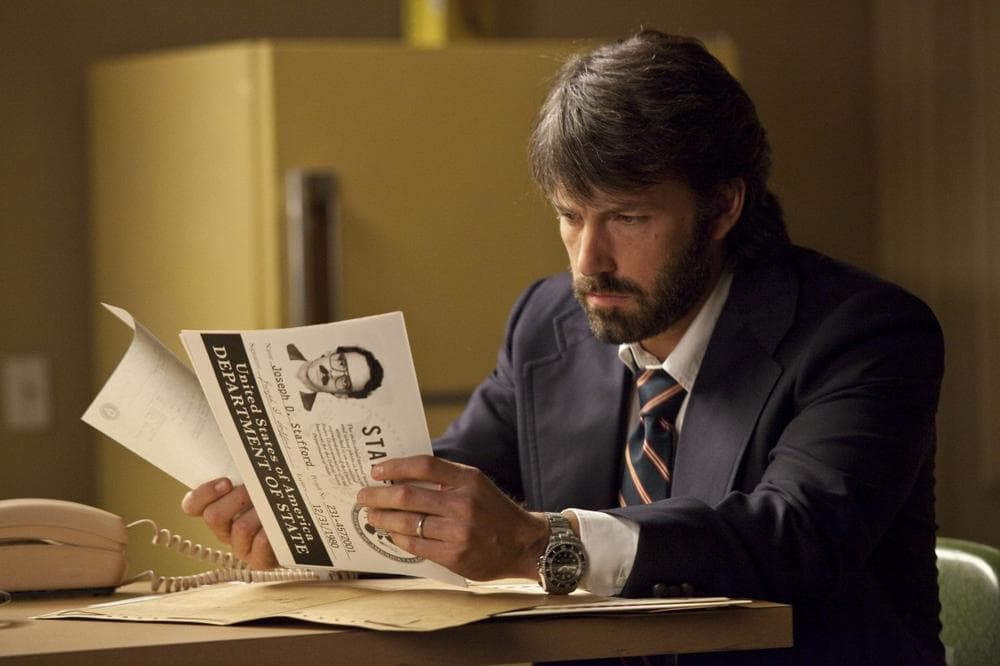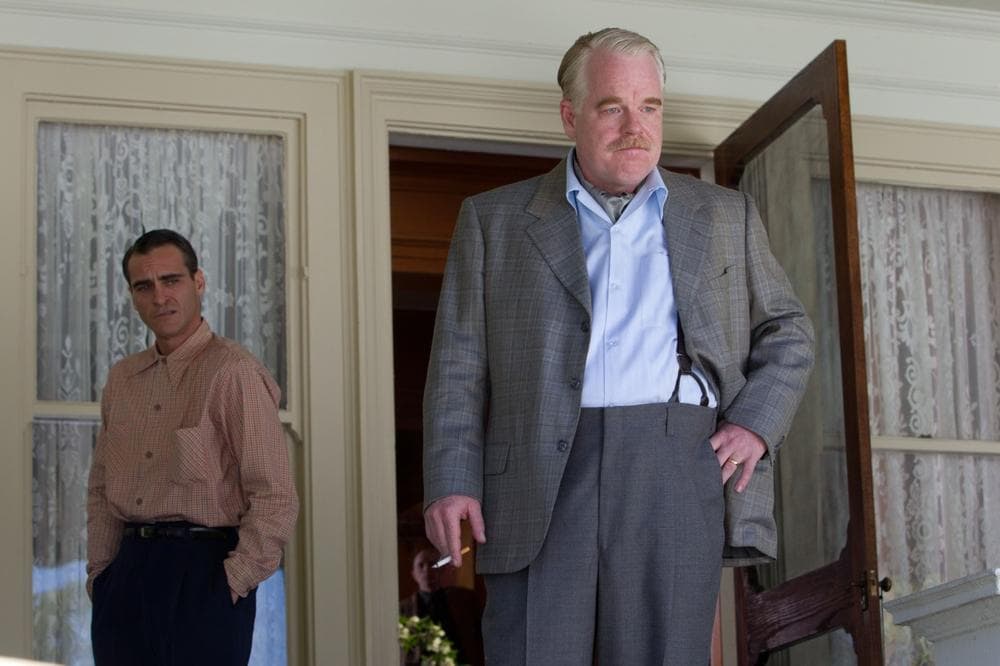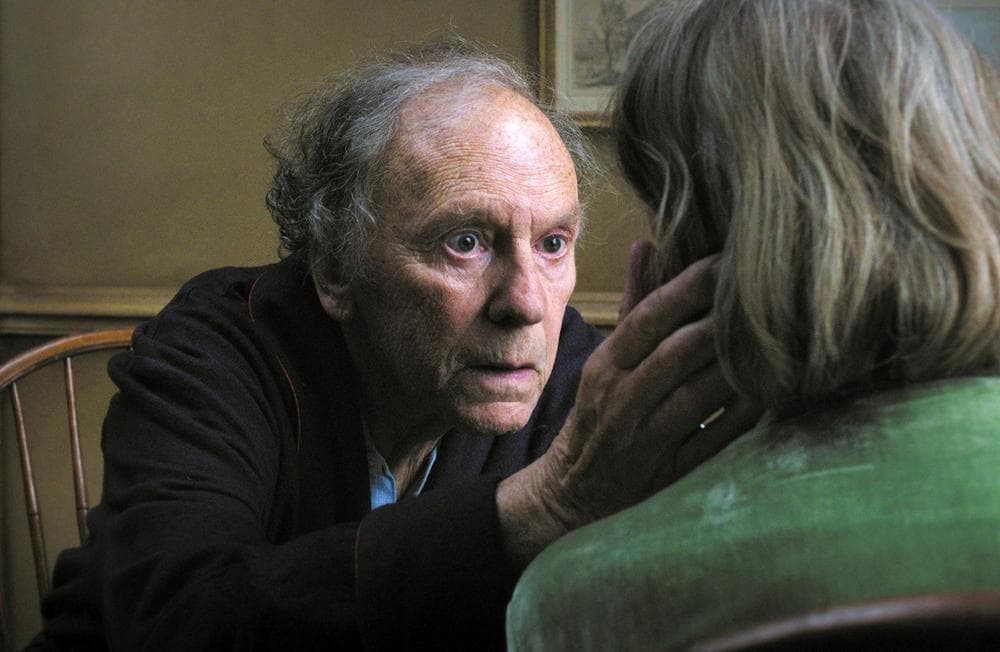Advertisement
Bottoms Up: This Year's Worst Best Films
The consensus forming in the wake of the Golden Globe nominations, critics’ awards and American Film Institute selections is that movies are better than ever.
This critic, struck by the low quality of 2012’s “top” films, demurs.
Picking through some of the year’s most noted films is a troubling trip back to a place from which I hope cinema makes a getaway in 2013.
It’s tough to say why a film gets caught up in an eddy of popular acclaim—in the politically heated climate of an election year, the movies that give us perspective by returning us to the past may have an edge. That seems to be the case with “Lincoln,” “Argo,” and now “Zero Dark Thirty.” They appeal to good old-fashioned American nationalism and, in celebrating a successful American past, speak to our longing to get back there again. The mistake is assigning grandiose value to timely art married to a powerful political moment; we still have to look with a critical, questioning lens at the films themselves.
Picking through some of the year’s most noted films is a troubling trip back to a place from which I hope cinema makes a getaway in 2013.
The tedious, overstuffed, yet sensuously photographed “Skyfall” made money and chums with critics. “Moonrise Kingdom” charmed the arthouse crowd in spite of (or maybe because of) writer-director Wes Anderson’s painful assault of neurotic whimsy. Fabulous early intentions in the indie tearjerker “Beasts of the Southern Wild” foundered in its suspiciously manipulative second half. “Silver Linings Playbook,” for all its delightful optimism and cheer-worthy ending, was ragged and unfunny in key stretches. The documentary “Searching for Sugar Man,” while introducing a prodigious singing talent, never found its subject’s core. The twin peaks of mainstream awful were the shallow, bloated “Flight” and the editing-phobic black noise of “The Dark Knight Rises.” Even the mighty “Lincoln,” peerless when focused on the political maneuverings to pass the 13th Amendment, lost its procedural momentum with a clumsy thud in a meandering closing argument better suited to a biopic than a ticking-clock snapshot event movie.
Three films stand out as bellwethers of the year’s disappointments:
Argo

The mostly faithful account of an episode from the Iran hostage crisis is a souped-up docu-drama with some tension and a sideshow comedy act courtesy of Alan Arkin and John Goodman. Its liability is director-star Ben Affleck’s acting. Cloaked in a gravitas-sniffing beard and a prolonged grimace, Affleck broods woodenly. While Affleck the director has a canny sense for populating his movie with terrific character actors and moving them around like synchronized pieces on a chess board, he fails to develop the people they play in favor of plot propulsion. Affleck’s concessions to populism include a gratuitous shot of his hairy torso and a shabbily conceived effort to give his protagonist a decency-mugging family story. A lot of the film works, but enough doesn’t that a flat-out great true story gets squandered. Laudatory reviews suggest a rush in Tinseltown to knight the competent genre filmmaker Affleck the next great director. “Argo” simultaneously mocks and adores the inner workings of Hollywood, and Hollywood loves itself too much to resist.
The Master

Paul Thomas Anderson’s latest comes when his career is perched between the sprawling Robert Altman-like world of “Magnolia” and the more confined two-character confrontation of “There Will Be Blood.” As his movies continue to evolve in ambition and maturity, the joy and newness of his raw talent is fading to a more personal, less universal world view. “The Master,” admirable as some of it may be, is his biggest career misfire — a vague, intentionally offputting exercise in tone. Jagged and discordant are key skill sets for Anderson, but without plot or climax, “The Master” is a mess. Joaquin Phoenix, all nose hairs and lip-curls, unforgivably arrests the already molten progress of the film, mumble by incoherent mumble. A great director puts the brakes on his star. Anderson is better than this. His talents may now be outstripping his accessibility, and the critical community enjoys participating in “you don’t get it, we do” elitism.
Amour

This French-language film from Austrian director Michael Haneke (“The White Ribbon”) is racking up reviews and awards typically reserved for legendary helmers. Haneke’s static camera captures the day-to-day rituals of an aged couple saying goodbye, the man coming to terms with the slow death of his wife. To call the film unflinchingly brave is an understatement, but it’s not exactly fair, either. We get no context, no sense of a great past love between these two people. As a result, the film feels sadistic rather than loving, cold where the beating heart should be. Haneke is at a point in his career at which critical tastemakers so revere his technique that he is immune to questions about his films’ morality. “Amour” answers these questions to a disturbing degree.
I go into every movie, whether it’s highbrow “Anna Karenina” or direct-to-DVD action flick “Universal Soldier: Day of Reckoning,” with optimism and an open mind. 2012’s films let down my generous expectations.
Related
This program aired on December 25, 2012. The audio for this program is not available.